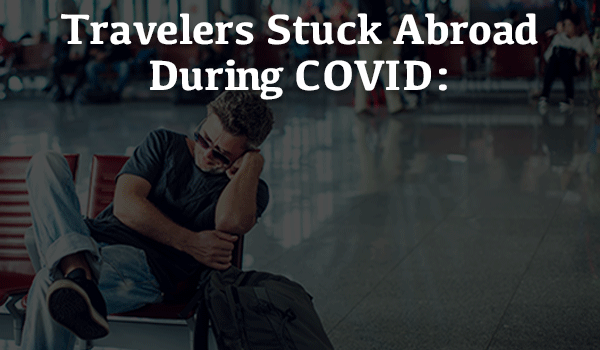By IDSE News Staff
Border restrictions and travel bans have a devasting psychosocial and financial effect on citizens stranded abroad, according to research being presented at the 2023 European Congress of Clinical Microbiology and Infectious Diseases (ECCMID) in Copenhagen, Denmark, in April (presentation 1526).
The research also highlighted the poor level of financial and health support provided by national governments for their citizens stuck overseas.
These measures have affected a variety of groups including tourists, business travelers, families, international students and short-term migrant workers.

“Very little attention has been paid to the unintended consequences of these restrictions on people’s lives and well-being,” said Holly Seale, PhD, an associate professor at the University of New South Wales, in Sydney. “Often the focus is on tourism and holidays, yet many tens of thousands of people were separated from their partners or families for 18 months or more. We hope our findings will help policymakers plan and communicate support packages for this vulnerable population in future public health crises.”
In a large body of research, involving four separate studies, researchers mapped the impact of border and travel restrictions on international and Australian travelers.
First, they analyzed government COVID-19–related information online and support options provided by 11 countries to their citizens stranded overseas in June 2021.
The analysis found that most countries provided some level of support around repatriation options; border control and reentry measures; medical assistance; and traveler registration. But no country provided all these types of support.
Moreover, only three countries provided information and support for emergency housing (the United Kingdom, Australia and Canada), and just five offered some form of mental health support (the United Kingdom, Australia, Canada, New Zealand and the United States). Less than half (5/11 countries) offered some form of financial assistance (the United Kingdom, Australia, Canada, France and the United States).
Worse still, the quality of COVID-19–related information provided by government websites in the four countries examined—Australia, Canada, the United Kingdom and France—was poorly accessible, particularly for people with low literacy, disabilities or limited English-language proficiency.

“Our findings highlighted gaps, inconsistencies and potential inequities in support available, and raise issues pertinent to the quality, accessibility and usability of information,” Dr. Seale said.
The team surveyed more than 2,400 people stranded abroad across all six regions globally between July and September 2021 and November and December 2021. More than half had been stranded for longer than five months, with most having more than one flight cancellation or change.
Almost two-thirds (64%) of the sample reported financial stress and moderate to severe depression. More than 40% experienced anxiety and nearly 60% reported being stressed. In addition, one in 10 experienced homelessness.
The levels of distress were found to be even higher among those separated from their partners or immediate families and temporary visa holders. Of these:
- more than 71% reported financial stress, with an average expenditure of $7,285;
- 77% experienced moderately to extremely severe depression; and
- over half reported moderate to severe anxiety (52%) or stress levels (63%).
“The levels of distress reported by this particularly vulnerable group are dramatically higher—over 50% more severe in some cases—than those reported by migrant workers, healthcare workers and the general population during the pandemic,” Dr. Seale said. “Respondents also reported little to no assistance from their national governments, highlighting the importance of providing additional support to this vulnerable group in future public health crises.”
Finally, the research team asked survey respondents about how they accessed information on COVID-19 travel restrictions and its perceived usefulness. The vast majority (78%) thought social media groups were most useful, with Facebook being the most useful and most used (87%), suggesting that this platform could be particularly influential for governments to disseminate information on future travel restrictions.
In contrast, government sources, including websites, call centers and local embassy social media posts were reported as being the least useful.
However, the findings obscure the role that age and gender play in information-seeking behavior. For instance, women found social media more useful than men, who preferred information provided by friends and family. For citizens and permanent residents stranded abroad aged 50 years and above, the preferred method for governments to circulate information was via a designated website, whereas for those 50 and younger, social media, government emails and a dedicated website were recommended.
“The shift toward seeking information from social media rather than more traditional sources brings with it the challenge of curbing widespread, harmful misinformation. Over 60% of our respondents reported inaccurate or misleading information within social media groups,” Dr. Seale said. “What’s more, information seeking is not one size fits all, underscoring the need for governments to consistently amplify clear, accurate and timely information through multiple communication channels.”
Dr. Seale reported no relevant financial disclosures.
{RELATED-HORIZONTAL}